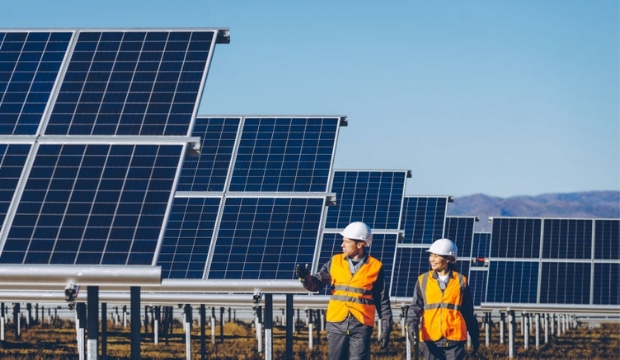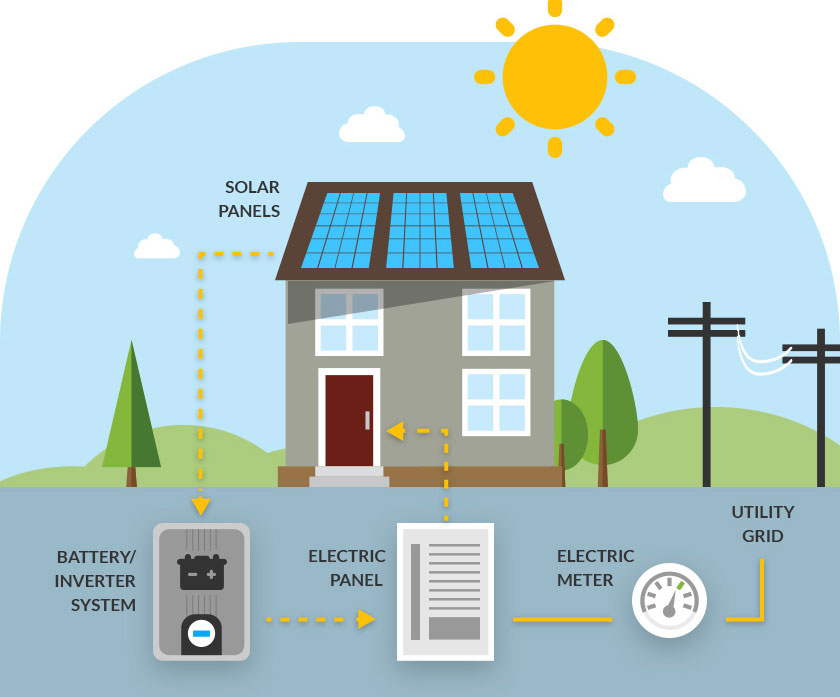Some Ideas on Solar Panel Company Virginia You Should Know
Some Ideas on Solar Panel Company Virginia You Should Know
Blog Article
Solar Panel Installers Virginia: Lumina Solar Focuses On Supplying Advanced Photovoltaic Solutions For Houses And Companies
History and Establishing
Have you ever wondered how a photovoltaic panel business springs from a mere spark read more of motivation into a powerhouse of renewable resource? It often begins with a vision-- one sustained by a blend of innovation, decision, and a pinch of serendipity. The journey of lots of solar companies mirrors the advancement of the innovation itself: from bulky, ineffective panels to streamlined, high-efficiency marvels utilizing the sun's bounty.
The Early Days
In the late 20th century, when solar power was still a niche principle, pioneers planted seeds for what would end up being an international motion. Picture a little workshop filled with curious engineers, relentlessly exploring with photovoltaic cells. Their enthusiasm was palpable, often driven by a desire to combat environment modification and lower dependence on nonrenewable fuel sources.
One such anecdote has to do with a creator who, motivated by a camping trip, understood that even in remote locations, the sun might power necessary devices. This basic observation stimulated a company's mission to equalize access to clean energy.
Founding Concepts

- Development: Continuously pressing the borders of solar innovation to improve efficiency and toughness.
- Sustainability: Dedicating to environmentally friendly production and reducing carbon footprints.
- Ease of access: Making renewable resource options affordable and practical for everyday users.
Milestones in Growth
| Year | Secret Event |
|---|---|
| 1985 | Business founded in a small garage, concentrating on research study and advancement. |
| 1995 | First business solar panel item launched, acquiring local attention. |
| 2005 | Broadened to global markets, embracing global eco-friendly energy goals. |
| 2015 | Introduced innovative solar panel technology with enhanced energy conversion. |
Isn't it interesting how these incremental actions, often neglected, shape the energy landscape today? The photovoltaic panel business story is not almost innovation; it has to do with a relentless mission for a brighter, cleaner future.

Innovations in Solar Panel Technologies
Ever discovered how some solar panels shine brighter and last longer? It's not magic; it's the science of photovoltaic effectiveness. Modern photovoltaic panel business invest heavily in innovations like bifacial cells, which record sunshine from both sides, enhancing energy harvest without expanding roofing system area. Have you ever questioned why some panels perform better on cloudy days? That is because of advances in thin-film solar technology, which grows under diffused light conditions.
Item Variations Customized to Unique Requirements
One size never fits all. Photovoltaic panel companies now use:
- Monocrystalline panels for maximum efficiency and streamlined aesthetics, ideal for space-constrained rooftops.
- Polycrystalline panels, which offer an affordable alternative without compromising too much output.
- Building-integrated photovoltaics (BIPV), combining solar tech seamlessly into architectural components like windows and exteriors.
Picking the right item isn't just about upfront expense; it's about matching your environment, energy goals, and long-lasting cost savings. For instance, homes shaded by trees need panels that master low-light situations, something numerous ignore up until energy bills climb up suddenly.
Technical Tips for Ideal Selection
- Evaluate the temperature level coefficient-- lower worths suggest panels lose less performance on hot days.
- Look for panels with enhanced anti-reflective finishings to optimize light absorption.
- Consider the panel's warranty not simply for problems, but for ensured power output over years.
- Do not underestimate the significance of the inverter innovation paired with the panels; it can make or break your system's efficiency.
Beyond Panels: Emerging Trends
Envision photovoltaic panels that adjust their angle immediately to chase after the sun-- tracking systems are becoming more available, increasing yield substantially. Or solar tiles that mix undetectably into your roofline, changing your home into a quiet, self-sufficient power generator. These developments are reshaping what a solar panel company uses-- not just products, but integrated energy solutions.
Market Presence and Global Operations
Ever wonder why some solar panel business seem to grow up in every corner of the globe while others barely make a ripple? The difference lies not simply in technology but in mastering the art of browsing diverse markets. Broadening internationally resembles planting seeds in various environments-- you must comprehend each environment's special conditions to thrive.
Take, for circumstances, the elaborate dance of logistics and supply chain management. Delivering panels halfway throughout the world isn't practically range; it has to do with timing, custom-mades, tariffs, and adapting to regional need changes. A company with robust worldwide operations expects these variables, making sure panels show up on schedule without inflating costs. This foresight is no little accomplishment and typically separates market leaders from followers.
Secret Techniques for Expanding Market Presence
- Localized production: Developing production centers near target audience lowers shipping delays and import complexities.
- Strategic partnerships: Teaming up with local firms speeds up market penetration and develops trust.
- Adaptive product style: Customizing solar panel tech to weather, sun intensity, and infrastructure subtleties improves efficiency and acceptance.
What about the human element? Photovoltaic panel companies operating internationally must fix up cultural distinctions and regulatory nuances without forgeting their core objective. For example, what works in a sun-drenched desert may falter in a humid coastal region. Sometimes, the most innovative service is simply listening-- soaking up local insights to refine technology and technique.
Professionals frequently encourage a phased rollout rather than a shotgun expansion. Why run the risk of overextension when determined development constructs sustainable momentum? Scaling wisely suggests balancing aspiration with operational durability - Solar Panel Company. In the race for sustainable energy supremacy, persistence can be as valuable as speed.
Ecological Impact and Sustainability Practices
When photovoltaic panels first emerged, many presumed they carried absolutely no ecological baggage. Nevertheless, the truth is more nuanced. The production of solar batteries involves unusual earth metals and energy-intensive procedures, which can leave a sizable carbon footprint before the panels even reach roofs. The true environmental expense depends greatly on the sustainability practices utilized by the solar panel company throughout the lifecycle of their items.
How frequently do we stop briefly to consider what occurs to photovoltaic panels at the end of their useful life? Unlike batteries or electronics, solar panels can last 25-30 years, however disposal and recycling paths remain underdeveloped in lots of regions. A business devoted to minimizing ecological damage will have a robust plan for recycling photovoltaic products, salvaging valuable silicon, glass, and metals to avoid land fill accumulation.
Secret Sustainability Strategies
- Using low-impact production methods that minimize water and energy consumption.
- Carrying out closed-loop systems to recycle production waste back into brand-new panels.
- Engaging in transparent supply chain audits to ensure ethical sourcing of raw materials.
- Designing panels for much easier disassembly to aid future recycling efforts.
It deserves noting that some solar companies have actually originated ingenious techniques, such as integrating naturally degradable parts or utilizing less harmful chemicals throughout fabrication. This not just decreases environmental pressure but likewise sets a precedent for the market. The concern remains: can the solar market really pivot towards a circular economy design without compromising efficiency or cost?
Specialist Tips for Assessing Sustainability
- Ask about the company's dedication to carbon-neutral production and whether they offset emissions.
- Investigate if they partner with certified recycling centers devoted to solar panel waste.
- Look for transparency reports detailing ecological impacts and sustainability objectives.
- Think about the durability and warranty of panels as an indirect measure of resource performance.
In the end, opting for solar power ought to mean more than simply slashing electricity costs; it has to do with nurturing a future where energy is collected responsibly and waste is thoughtfully managed. Photovoltaic panel companies that embrace this viewpoint not just light up homes but likewise cast a brighter light on sustainable development.
Report this page